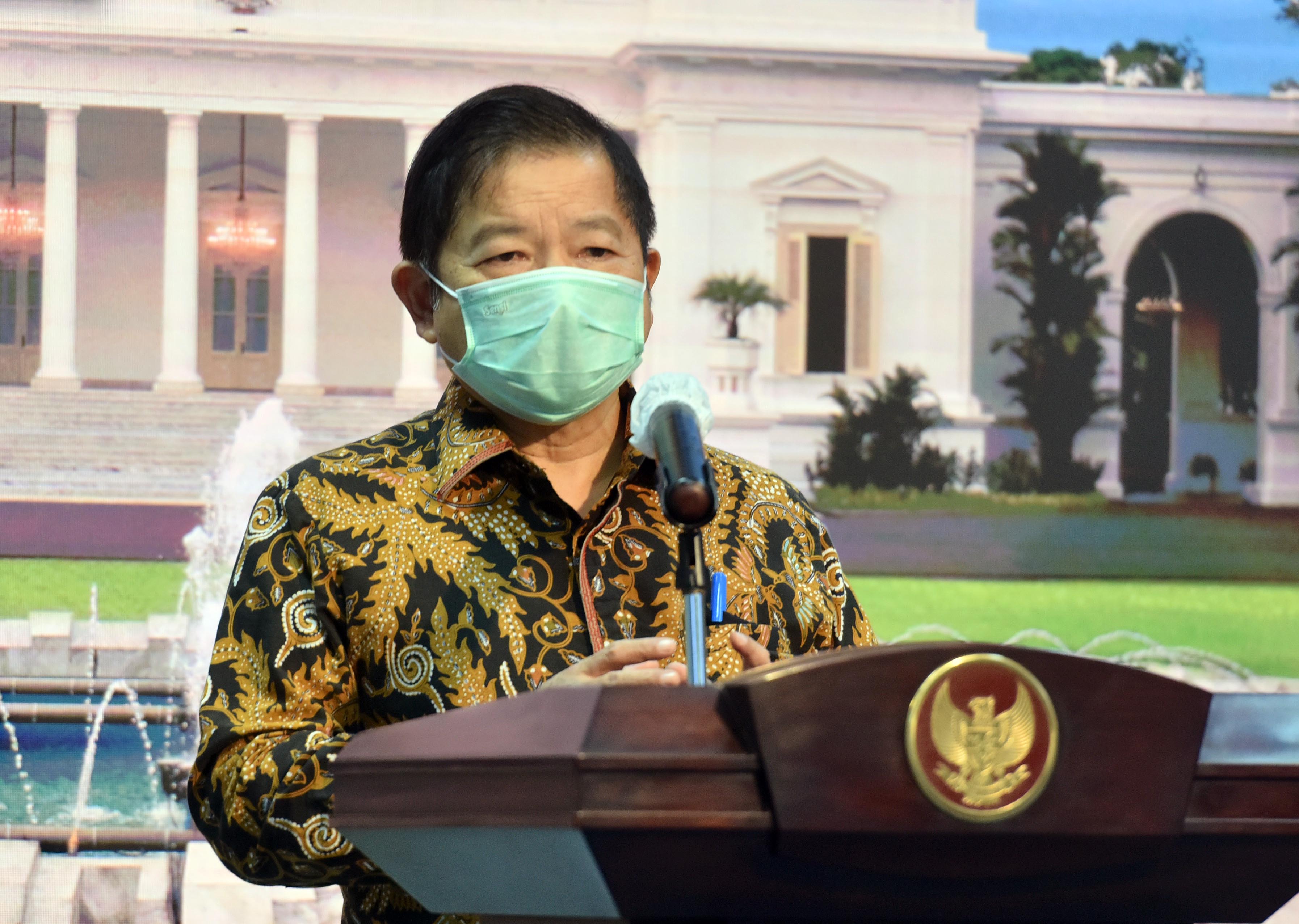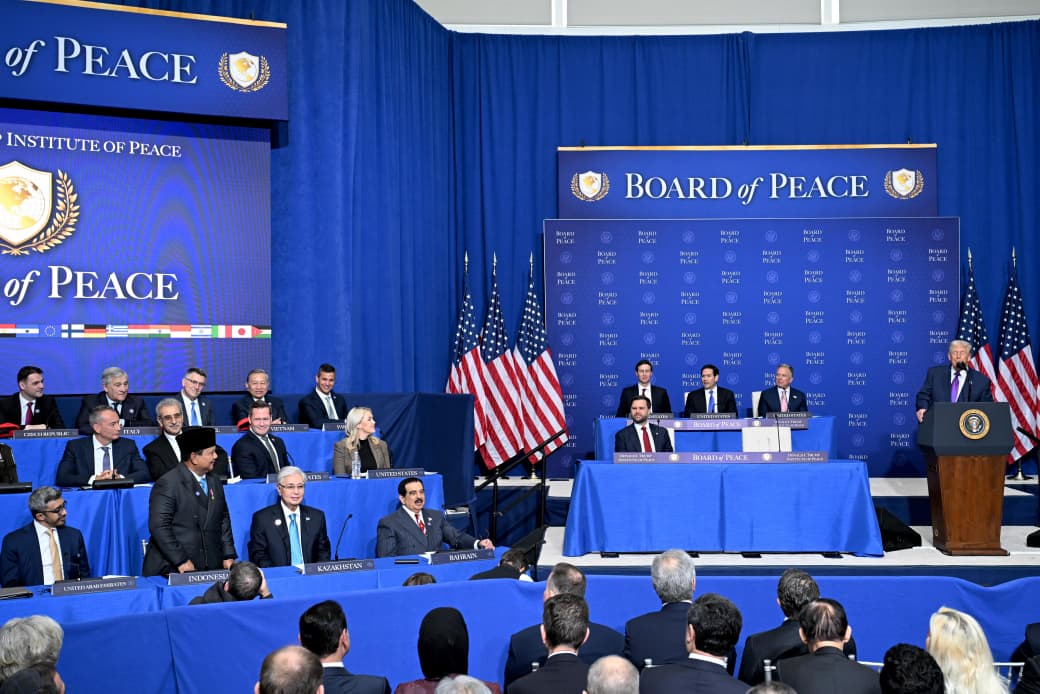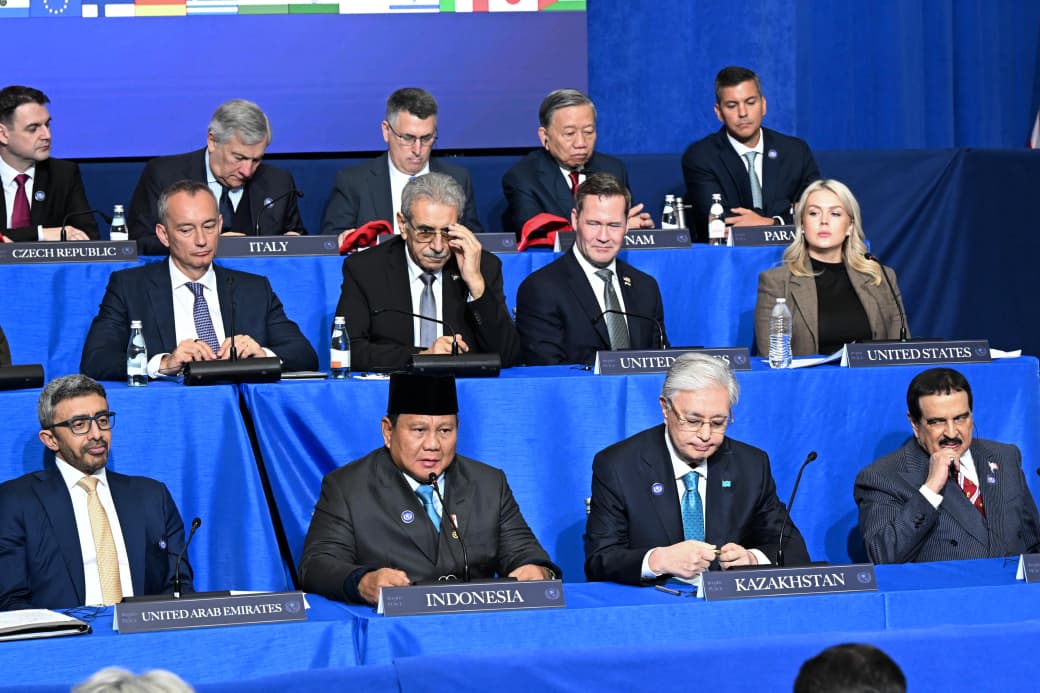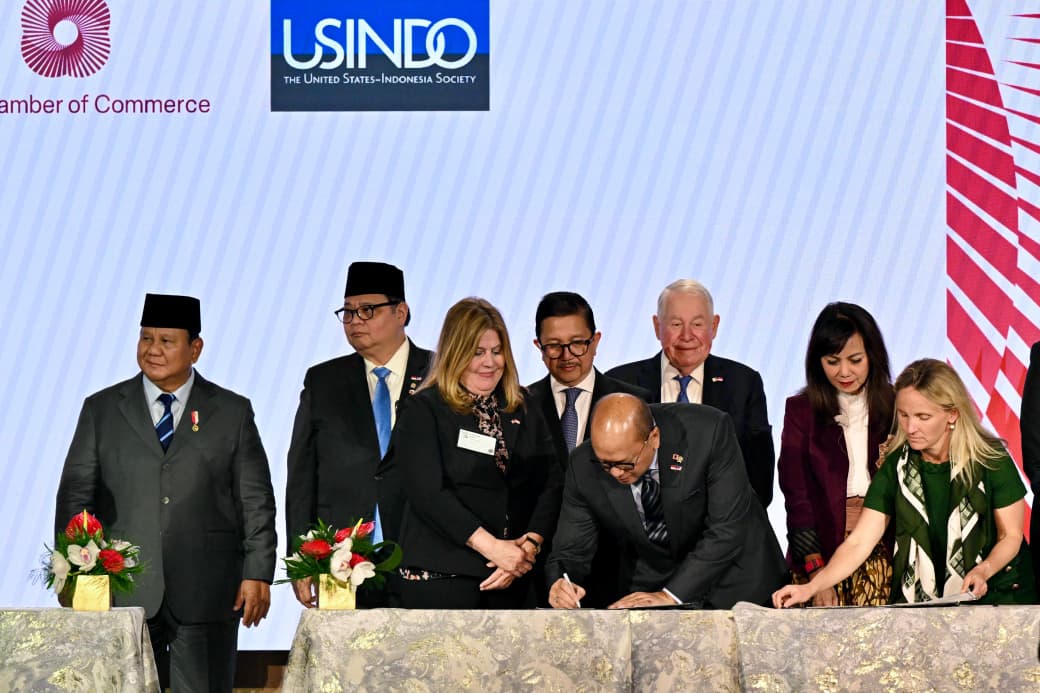Gov’t Strengthens Development Design in Papua, Minister Says

Minister of National Development Planning (PPN) / Head of National Development Planning Agency (Bappenas) Suharso Monoarfa (Photo by: Documentation of Cabinet Secretariat)
The Government has renewed its commitment to solving the root problems experienced by Papuan people through the issuance of Presidential Instruction (Inpres) Number 9 of 2020 on the Acceleration of Welfare Development in Papua and West Papua.
“A comprehensive strategy for Papua has been conducted by the central and regional government from various perspectives since the era of special autonomy (Otsus) in 2001,” Minister of National Development Planning (PPN) / Head of National Development Planning Agency (Bappenas) Suharso Monoarfa said, as quoted from the bappenas.go.id, Tuesday (08/12).
The Minister went on to say that several measures in the grand design have been taken for Papua and West Papua. “The poverty rate has decreased significantly from 54.75 percent in March 1999 to 26.55 percent in September 2019,” the Minister said.
The grand design for the acceleration of welfare development in Papua and West Papua covers seven strategic measures. They are as follows:
First, the Government has agreed that the autonomy framework according to Law Number 21 of 2001 on the Special Autonomy for Papua Province is considered as asymmetric, affirmative, and contextual steps in managing the development, regional governance, and public services in the land of Papua.
In the context of sectoral regulatory framework and the budget framework, the Otsus has raised a new spirit of policy formulation specifically for Papua, either at the central and regional levels.
Second, the Otsus has pushed for political decentralization that opens up opportunities for the Indigenous Papuans (OAP) to participate in local governance. the Indigenous Papuans as governor, regent, and mayor, recognizes cultural specificity through the existence of Papuan People’s Assembly since 2004, as well as new districts formation since 2002 in order to accelerate public services for Papuan people in remote areas.
Through political decentralization, the authority to manage regional development is in the hands of the Papuan people, which will be based on local needs and wisdom.
Third, the Otsus has become the Government’s guidance in the special design for the acceleration of Papua’s development through Presidential Instruction Number 9 of 2017 on the Acceleration of Welfare Development in Papua and West Papua Provinces as well as Presidential Instruction Number 9 of 2020 on the Acceleration of Welfare Development in Papua and West Papua.
The strategy is the alignment proof of the Papuan context with a focus on Papuan human resources, the people’s economy from upstream to downstream, integrated regional infrastructure, sustainable development, and good governance.
“The Indonesian Government also pushes priority activities through the quick-win programs in various regencies/cities according to customary territories and strengthens partnerships with various local figures in several sectors for the implementation of development from 2021 to 2024,” Suharso said.
Fourth, the President urged to take measures through the adoption of a cultural approach to customary and ecological territories in national development planning, be it in the National Medium-Term Development Plan of 2015-2019 and 2020-2024 (RPJMN).
Those 7 customary territories in Papua include the customary areas of Saireri, Tabi, Laa Pago, Mee Pago, Animha, Domberai, and Bomberai. The policy and implementation strategies are expected to be hand in hand with the needs, aspirations, and local wisdom of Papua and West Papua.
Fifth, the commitment to empowering the Indigenous Papuans in the public sphere, both in the ranks of ministries/institutions, the Indonesian Defense Forces (TNI) and the National Police, and state-owned enterprises (BUMN). In particular, President Jokowi has issued Presidential Decree Number 17 of 2019 on the Procurement of Goods and Services to accelerate welfare development in Papua and West Papua.
The Presidential Decree aims to strengthen the alignment of ministries/institutions and regional governments in increasing the capacity of Papuan business players, including essential breakthroughs for the Papuan entrepreneurs to be involved in direct procurement related to construction work worth around one billion rupiahs.
In particular, the Papuan entrepreneurs can also take part in tenders for construction work worth at least more than Rp 1 billion and Rp 2.5 billion. This affirmative policy is also aimed at creating entrepreneurship among Papuans.
Sixth, the Government has also designated Papua Province to host the twentieth National Games (PON XX), which was postponed to October 2021 to mitigate the COVID-19 pandemic. That is a historic moment to awaken the pride and identity of the Indigenous Papuans, as well as mobilize regional economic equality for all levels of Papuan society.
The National Games is not only about a sporting event, but also as an arena to celebrate diversity, strengthen the spirit of brotherhood, and strengthen unity and integrity as directed by the President.
The PON XX will be held in three cities/regencies, namely Jayapura City, Jayapura Regency, and Mimika Regency. Merauke Regency serves as a buffer regency where athletes from across the country will compete in 37 sports, including aerosport, fencing, badminton, chess, rowing, wrestling, judo, shooting, muay thai, archery, gymnastics, sepak takraw, roller skates, taekwondo, tarung derajat, tennis, boxing, wushu, and other sports.
Seventh, a number of approaches, strategies, and policies that are holistic and affirmative for Papua are based on the ongoing global conditions, including climate change adaptation, disaster resilience, gender and social inclusion, collaborative and open governance, and human security.
In this case, several new initiatives have been carried out, including the implementation of the Low Carbon Development Initiative or Low Carbon Development in West Papua, the initiation of Green Economic Growth for Papua, and digital-based Village Development in Papua and West Papua.
“The Government is open to hearing suggestions and input from stakeholders to manage the development in Papua. Our basic principle, the acceleration of Papua development that is humanist, sustainable, and inclusive, should be oriented towards fulfilling the basic rights of the Papuan people within the framework of the Unitary State of the Republic of Indonesia,” he concluded. (PR of BAPPENAS/UN) (RIF/LW)







